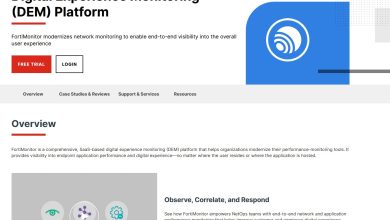
Not-for-profit organizations face a growing need for extraordinary leaders. Strong and talented nonprofit leadership is critical to managing increasingly complex challenges while keeping organizations focused on their core mission.
However, the need for strong senior leadership (i.e., the mix of skills required to lead and manage an organization) is often underestimated. Many organizations equate strong leadership solely with the presence of a charismatic chief executive, many organizations say that people are their most important asset. That’s not accurate. The right people are the most important asset of an organization. Nonprofits need to be strict in determining who should be in their organization, and in which seat.” Given the potential of the right people in senior leadership roles.
Organizations typically engage the expertise of search firms when they are facing new situations or challenges. For example, an organization may be experiencing a growth phase and need access to candidates with skill sets not previously required. Such might be the case for an organization hiring a chief operating officer for the first time. Regardless of the situation, using a nonprofit search firms can offer 5 advantages which you can see below:
1. Identification of qualified and motivated candidates.
A search firm can develop an outreach strategy to identify candidates outside of an organization’s personal networks. This may include a strategy for placing advertisements and/or a set of phone calls/emails to uncover new candidates—including potential candidates not actively job hunting.
2. Functional or other expertise.
Many search firms will have a particular expertise. It might be focused on a particular service area (e.g., higher education or healthcare), a particular budget size, or a particular function (e.g., executive directors, chief financial officers, chief operating officers, development directors, etc.).
3. Third-party objectivity.
A search firm is an objective participant in the process. As such, the assigned consultants should be able to flag issues as they arise. This can be particularly helpful in cases where the search committee is divided on the profile of a position or on a set of final candidates. Third-party objectively is also useful when conducting references on potential candidates.
4. Efficient processes.
Working with nonprofit search firms can free up valuable time of the board and/or executive director. For example, search firms can create useful resume screen and interview tools to save time and create a better outcome.
5. Confidentiality.
From time to time the nature of a search must be confidential in order to avoid publicity over an impending chief executive officer or senior manager departure. A search firm can conduct a search without sharing the name of the organization.
How do nonprofit search firms provide services?
To find the right firm for your search, you must consider a number of factors. Search firms can vary greatly by size, ranging from large firms to independent consultants. They may have an international, national, regional, or local focus. Some firms are generalists, while others may specialize in a particular function, industry, sector, or in an area like diversity. Firms also vary in the way they offer services and in the way they bill the client for those services.
Retained search firms typically provide the whole range of search services as a package, including executing the search process, managing the search committee, and doing reference checks. For this type of search, an organization pays a fee, typically one-third of the position’s salary plus expenses related to the search.
Retained firms have a strong motivation to work on even very complex searches until they are completed because their reputation as a firm is dependent on their clients’ satisfaction. However, the client commits to paying the fee regardless of whether or not the retained firm actually finds and recruits a successful candidate.
In a retained search, the client also commits to work with only that particular firm on the search. Some full search firms offer a la carte services. This means, for example, that depending on the needs of an organization, it could hire a firm solely for advice on formulating the job description, or developing a candidate pool.
Other search firms work on a contingency basis. Contingency firms do not generally provide consultative services, but rather focus on generating potential candidates to fill a position. The client may use multiple contingency recruiters for the same position, and only pays a search firm if the firm actually finds the successful candidate.
While recruiters at a retained firm are salaried, individual recruiters at a contingency firm are compensated when they personally identify and present a successful candidate to a client. They may be competing with other contingency recruiters, even in their own office, to find and place successful candidates. Contingency firms typically rely on their database of job candidates, reaching out to their networks to quickly fill the search. That may result in straightforward, easier-to-close searches receiving higher priority than more complex searches, such as those for senior positions.
When deciding between a retained and a contingency firm, you should consider what type of relationship you need to have with the search firm. Will you need advice and support throughout the search, or do you simply need to generate a number of candidates to interview for the position? Is it important for you to have one recruiter consistently representing your organization throughout the search or is it acceptable for candidates to get multiple calls from multiple recruiters? Find out which recruiters at the search firms will be working on your search and exactly what their roles will be in the process.
The recruiter you choose will be acting as your organization’s proxy. Since a search process can be a valuable time to cultivate new and existing relationships, carefully consider how the recruiter will represent your organization. You should examine the expertise of the recruiters at each firm. Typically, retained firms have more experience with senior-level executive searches, while contingency firms focus more on junior- and mid-level managers.
Concluding thoughts
Recruiting the right people in the right senior leadership roles is not easy; it is a process that requires investments of time and other resources. However, the results can have significant impact for an organization and for the nonprofit sector.




